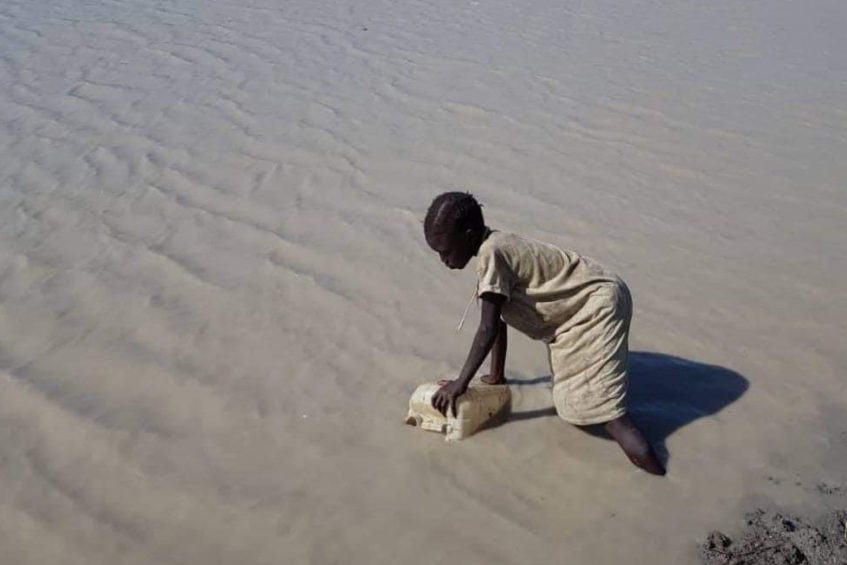
A resident of an oil-producing area fetches dirty water from a pond in April 2021. The regime change advocates have been appealing to leaders to bring piped water, electrify towns and keep every citizen safe | Credit | Courtesy
The people that are advocating for regime change in South Sudan should wait for elections, the government spokesperson has advised.
He said anyone seeking to dispose of the government without the elections is agitating for violence.
His comments come after an online group dubbed the People Coalition for Civil Action demanded the resignation of the President and the First Vice President.
The group also called for the dissolution of the entire transitional government of national unity.
In his address to the media on Sunday, Michael Makuei urged the public to shun those pushing for the disbanding of the coalition government.
“Anybody who wants power should wait; be patient for election is around the corner,” Michael Makuei told reporters.
“…people will vote for you. And if you win, then you will be most welcome to takeover. Transfer of power is not by force; it is not through violence but it is through the ballot.”
However, some of the individuals and groups (activists and scholars) that are pushing for regime change have not expressed interests in public offices. They have been asking the leaders to be transparent, accountable and development-oriented.
Three years have elapsed since the signing of the peace deal.
In addition, South Sudan – which has never held elections since it gained independence in July 2011 – is supposed to go for polls in 2022, according to the peace deal.
But the parties are yet to complete implementation of most parts of chapter one on governance; chapter two, on permanent security arrangements; chapter three on special reconstruction programs; chapter four on economic reforms; and even on the establishment of a proper justice system.
For elections to take place, the agreement says the Political Parties Act of 2012 must be reviewed and approved by the parliament to enable free and democratic registration of political parties in South Sudan.
It also expects the permanent constitution to be enacted before a new National Elections Commission organizes the polls.
In January 2021, Kiir’s office said the parties agreed to extend the Transitional Period up to 2023 to allow full implementation of critical tasks.
The UN has often urged the unity government to “demonstrate the political will to progress implementation of the revitalized peace agreement”.
In May, the UN Security Council conducted an assessment on the requirements needed to conduct a democratic election by the end of the transitional period.
Some of the requirements include infrastructure, expertness, training, and capacity building.
Support Eye Radio, the first independent radio broadcaster of news, information & entertainment in South Sudan.
Make a monthly or a one off contribution.
Copyright 2024. All rights reserved. Eye Radio is a product of Eye Media Limited.